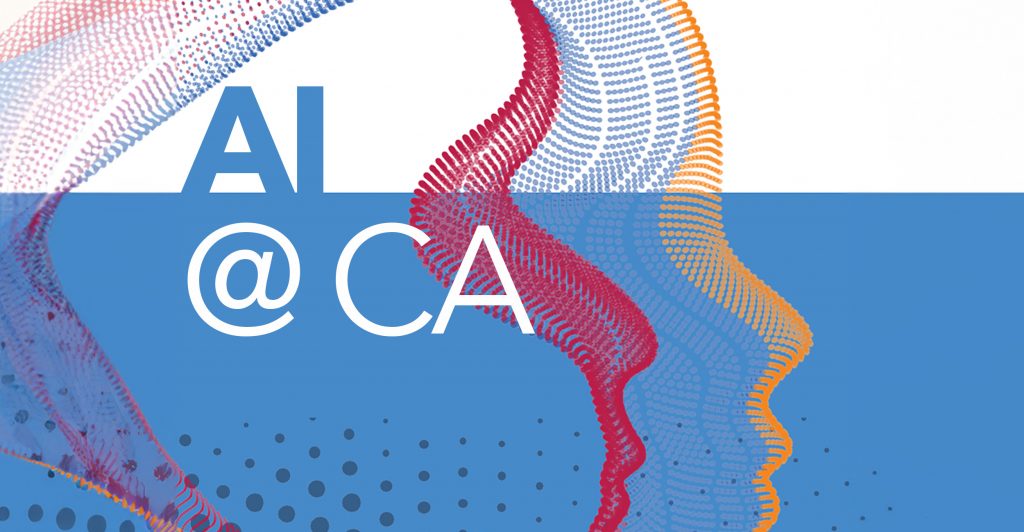At turns heralded as the future of humankind or the harbinger of its demise, generative AI dominates today’s headlines.
Proponents point to ways in which it can enhance creativity and streamline complex tasks, potentially unlocking new levels of intellectual productivity. Others express concerns about ethical use, misinformation,
and implicit bias—even cautioning against a collective “dumbing down” of humanity.
As these arguments unfold alongside the unfettered and blistering pace of AI development, we find ourselves in a high- stakes race to understand, regulate, and integrate these powerful technologies into society before they outstrip our capacity for control and ethical oversight.
How is CA preparing our students and faculty for this ever-evolving, brave new world? As we always do: by leaning in.
“Innovation is in CA’s institutional DNA; we’ve always empowered our faculty and students to experiment with emerging technologies as tools to enrich learning and boost engagement,” explains
Dr. Mike Ehrhardt, Head of School.
“Now is a pivotal time for exploration and experimentation with generative AI— when definitive answers are as elusive as the technology is promising. We’re navigating
uncharted territory, and we acknowledge the uncertainties while thoughtfully embracing AI’s immense possibilities.”
This proactive approach was evident in a half-day professional development symposium this fall, where Ehrhardt
invited faculty to think big about generative AI. Led by guest experts—including AI luminaries and CA Board members Dr. Eric Laber from Duke University and Dr. Glenn Kleimann from Stanford University and SAS analysts Dr. Sam Leeman-Munk, Dr. Kedar Prabhudesai, and Evan Markfield—faculty delved into AI’s technological underpinnings, history, and future to consider its potential for our learning community.
“Generative AI is unique in its promise as a digital learning partner—as a curiosity tool that allows you to boost your creativity, take your exploration to the next level, and learn more deeply,” continues Ehrhardt. “There are important questions like academic integrity that we must consider, and these require transparency with students, but we can’t let them be obstacles to teaching and using these tools in the classroom.”
Indeed, the AI genie is out of the proverbial bottle.
“AI is already a part of students’ lives, and it is undoubtedly going to be part of their futures,” says Patrick Lasseter, Upper School History Department Chair. “Our responsibility is to guide them towards
its ethical, effective use and to encourage critical thinking about its limitations and potential biases.”
At CA, this means offering students ample opportunities to flex next-generation skills, like crafting effective AI prompts and
critically evaluating AI-generated content for bias, appropriation, and misinformation just as they would any other source.
While concerns about the potential misuse of AI as a shortcut to learning are real, Ehrhardt and Lasseter see them as opportunities to engage students in meaningful discussions around ethics and the value of learning for learning’s sake. For both, the benefits far outweigh the risks of embracing AI in the classroom.
“Efficiency-boosting tools like generative AI should be embraced. They can enhance the quality of academic work by freeing time for deeper inquiry and richer exploration,” offers Ehrhardt. “It can enable us to take learning to whole new levels—and that’s to be celebrated.”

